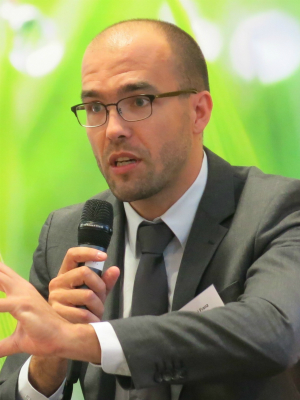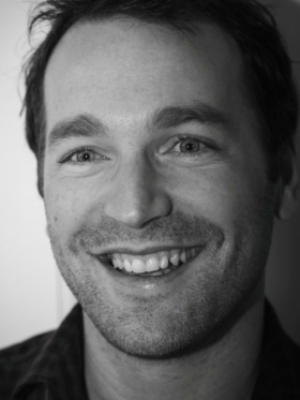Building Energy Access Markets: A Value Chain Analysis of Key Energy Market Systems (Clean Energy Solutions Center)
30 July 2015
View Webinar Content
Presentation—Introduction to the webinar and panelists (PDF)
Presentation—Michael Franz: Building Energy Access Markets A Value Chain Analysis of Key Energy Market Systems (PDF)
Presentation— Jem Porcaro: Building Energy Access Markets: A Value Chain Analysis of Key Energy Market Systems (PDF)
Presentation— Charlie Miller: SolarAid Sunny Money Model (PDF)
Presentation—Chris Service: FRES’s Model for Decentralized Energy Access in Sub-Saharan Africa (PDF)
Transcript—Webinar audio transcript (PDF)
<!–
9:30 a.m. EDT | 3:30 p.m. CEST
Check your local time.
Reserve your seat now
–>
The Clean Energy Solutions Center, in partnership with the United Nations Foundation’s Energy Access Practitioner Network, EU Energy Initiative Partnership Dialogue Facility (EUEI PDF) and Practical Action hosted this webinar to showcase the Building Energy Access Markets framework. This publication, developed by Practical Action Consulting, offers policymakers and practitioners a method for designing and delivering interventions that can achieve scale and sustainability and also features applicable case studies. This webinar is part of the broader work that the UN Foundation is undertaking on energy access within the UN and the World Bank’s Sustainable Energy for All initiative.
Project managers and service providers are faced with a set of difficult questions when trying to scale energy access for poor or marginalised populations. Achieving this through market systems is even more challenging due to the multiple and interconnected variables that determine whether large numbers of households and businesses receive electricity on a sustainable basis, and the right entry points and enabling environment that make implementation—through both private and public sector delivery models—more cost-effective and successful.
Michael Franz, Project Manager, EUEI PDF, presented key features of the EUEI PDF publication—an analytical framework that allows development practitioners to assess energy market systems and develop effective interventions for particular countries. The publication aims to promote investment, growth and scaling of energy access by identifying the structure and key features of such a market. It also proposes interventions that development partners can undertake to promote energy access sustainably and at scale. Charlie Miller, Head of Policy and Program Funding, SolarAid, and Christopher Service, Business Developer, Foundation Rural Energy Services (FRES)—Practitioner Network member organisations featured in the report’s leading case studies—shared their experience and collective best practices regarding how market system approaches influence their work within the context of the energy access sector. Mr. Miller presented SolarAid’s work on pico-solar in Malawi, and Mr. Service presented FRES’s work on solar home systems and hybrid mini-grids in Mali.
The presentations were followed by an interactive Q & A session with the audience that provided an opportunity to discuss the framework and its on-the-ground applications in further detail.
<!– If you cannot attend the webinar in person, you can follow the live Tweets via #PNwebinar. –>
Panelists
 Charlie Miller, Head of Policy, SolarAid
Charlie Miller, Head of Policy, SolarAid
Charlie Miller is Head of Policy at SolarAid, an international NGO dedicated to eradicating the kerosene lamp through building the market for portable solar lights. SolarAid wholly owns Africa’s largest distributor of solar lights, SunnyMoney, which sells quality affordable lights to customers living below the $1.25 a day poverty line. Charlie co-chairs the Policy Working Group at the Global Off-Grid Lighting Association and sits on the steering committee of the Power for All Campaign. He advises governments, aid agencies, foundations and investors on policy, grant-making and investment in the off-grid energy space. Charlie previously worked for a range of leading development NGOs on issues such as livelihoods, health, education and governance. He holds a Masters in Conflict, Governance and Development from the University of York.
 Michael Franz, EU Liaison and Project Manager, EU Energy Initiative Partnership Dialogue Facility
Michael Franz, EU Liaison and Project Manager, EU Energy Initiative Partnership Dialogue Facility
Michael Franz is a senior adviser for sustainable energy in international cooperation. He has extensive experience in working with donors, European Commission, private sector, development agencies and financing institutions, towards mobilizing investment in renewable energy and energy access projects. His work focuses on the nexus of energy project development, policy frameworks and financing, with a geographic focus on Sub-Sahara Africa. Mr. Franz is EU Liaison and Project Manager at the EU Energy Initiative Partnership Dialogue Facility (EUEI PDF), based in Brussels. EUEI PDF is a multilateral European initiative that promotes energy access and renewable energy in developing countries. EUEI PDF is hosted by Deutsche Gesellschaft für Internationale Zusammenarbeit GmbH, a service provider for sustainable development in international cooperation. He holds an MA degree in political science and geography, where he specialized in climate change as well as energy governance and policymaking. In previous functions, he was employed as energy advisor with a regional portfolio covering East Africa, based in Kenya. He supported the first two on-grid solar photovoltaics (PV) projects and the first on-grid biogas project in Kenya, and he contributed to numerous other initiatives, including qualification and training programmes for local entrepreneurs. In addition, Mr. Franz advised policymakers and regulators on the energy investment framework, in particular in Kenya and Uganda.
 Chris Service, Business Developer, Foundation Rural Energy Services
Chris Service, Business Developer, Foundation Rural Energy Services
Chris is the Business Developer at Foundation Rural Energy Services (FRES), a Netherlands-based non-profit that accelerates socio-economic improvements in rural communities of developing Sub-Saharan Africa through the roll-out of a standardised fee-for-service model for rural electrification. FRES works by establishing local commercial companies that provide affordable and reliable access to (solar derived) electricity services to rural off-grid communities. It has a network of five local companies in Mali, South Africa, Burkina Faso, Uganda and Guinea-Bissau and provides over 33,000 households and small enterprises with affordable and reliable electricity access via solar home systems and solar mini-grids. Prior to his work with FRES, Chris has worked in New Zealand and France in the field of environmental monitoring (hydrology, meteorology, freshwater ecology and coastal morphology) and geospatial mapping. He holds a B.A in Environmental Management and a PGDipTech (Hons) in Energy Management with a specialisation in remote access power systems.
